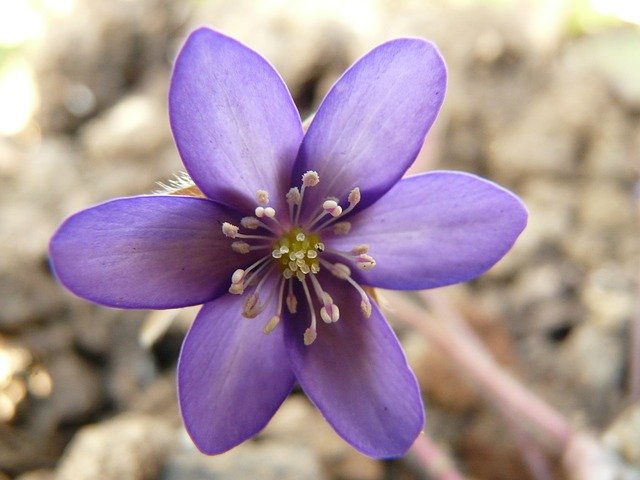The Often Missed Diagnosis: The Gallbladder
Gallbladder dysfunction is often missed by conventional medicine until it is too late. As natural functional medicine practitioner we are trained to understand the signs and symptoms and we know how the dots are connected. In today’s post I wanted to provide you a better understanding of how the gallbladder and the liver, two vital organs are connected.
Bile: Produced in the Liver and stored in the Gallbladder
Bile is a vital body fluid that plays an important role in the absorption of nutrients in the small intestine as well as flushing the liver of toxins. It is continuously produced in the liver by cholesterol oxidation and conjugated (change in form ) to glycine and taurine, and subsequently stored in the gallbladder. Bile also works as a signaling molecule both inside and outside of the liver.
The Master Organ
According to Traditional Chinese Medicine (TCM), the root cause of the majority of imbalances in the body is liver dysfunction. In TCM, the liver is known as the “master organ,” as it is the causative factor in many of the body’s ailments. The liver helps with detoxification, enzyme production, bile production, hormone production, immune cell activation and the storage of vitamins and iron.
How Does the Liver Function?
A critical function of the liver is the excretion of bile. A healthy liver also plays an important role in nutrient distribution by effectively metabolizing energy as well as storing vitamins and minerals for later use. In fact, everything that enters the body via the mouth is processed by the liver.
In modern society, many individuals have livers that are overburdened and cannot perform their essential functions. This breakdown of function can lead to disease. Blockages in the gallbladder (such as gallstones and bile duct stones) can increase the amount of daily nutrition required, due to the lack of nutrients being absorbed. Additionally, these stones can hinder bile’s ability to remove toxins. A liver that is not functioning optimally produces less bile, which can result in digestive issues such as bloating, constipation and stomach pain.
The Importance of Bile
Bile has many functions; one of these functions is to lubricate the small intestines and stool. Less lubrication can result in constipation while too much can lead to diarrhea. A blockage in this area also increases the accumulation of toxins in the body, which creates oxidative stress, backing up waste matter. When this happens you feel tired and have low energy. You might also experience more aches, stiffness and pain.
When waste back up from too much food or undigested food left in the intestine, it ferments, which may lead to leaky gut due to toxic gasses penetrating the intestinal lining.
What else does Bile do?
Bile salts break down fats, so adequate bile is required for processing of the fats we consume. If we do not process fat well it gets stored in the tissues and causes unwanted weight gain. Bile also transports toxins out of the liver into the feces, and keeps everything flowing properly. We all want that don’t we? We do not feel well when we are constipated or have the dreaded loose stool.
Good Fats are necessary for Hormone and Blood Sugar Balance
Fat soluble vitamins (A, D, E and K) can only be broken down in the body if there is adequate bile. Patients that have had their gallbladder removed must be aware that they have no bile storage system, and, therefore, must manage bile production. Skip ahead for lifestyle recommendations. For patients without a gallbladder I often recommend
- Choline : assists with fat metabolism in the liver
- Cholacol:(Light colored stools) which contains Bile Salts to help metabolize fats.
Liver Function is Important for Hormonal Balance
The liver and thyroid have a synergistic relationship, as T4 is converted to T3 by bile in the liver. T3 is the more potent thyroid hormone, metabolized from iodine. A thyroid problem may actually be the result of a bile or liver malfunction rather than anything to do with the thyroid. Yes you heard that right…
The liver also metabolizes many other hormones, such as insulin-like growth factor, and plays a major role in the inactivation of excess hormones.
Mental and mood imbalances can result from an unhealthy or fatty liver because of the liver’s influence on hormones. Because mental and mood balance correlates with hormonal balance, it is vital to keep the liver healthy.
Signs of Liver Imbalance
Bile cannot be produced effectively by an unhealthy liver. There are a wide range of symptoms of liver imbalance that could be contributing to low bile output, including
Gas, bloating, constipation
Leaky gut
Hemorrhoids, Varicose veins, Leg pains
PMS, Irritability
Sleeplessness
Poor fat digestion
Irregular stool
How to Support the Liver for Healthy Bile Production
1. Remove Causative Factors
First, remove causative factors that may be harming the liver. For example, avoid anything that increases lactate, such as sugar, alcohol and processed foods. The liver is the primary organ for lactate clearance, therefore, it’s important to ease the burden as much as possible.
2. Eat Foods that Support the Liver
Liver-supporting foods include bitter greens, dandelion, milk thistle, berries, and beetroot. Ginseng also promotes a healthy liver and bile production. To optimize the effectiveness of liver-supporting foods, it’s best to choose organic, which lowers the toxin burden on the liver.
3. Practice Diaphragmatic Breathing Exercises
An interesting area of research in supporting the liver is diaphragmatic breathing exercises. The liver is positioned just below the diaphragm, and many people have shallow breathing. During deep diaphragmatic breathing, the diaphragm pushes down and massages the liver, stimulating bile production. Another reason to include breath-work and yoga into your everyday routine.
4. Try Intermittent Fasting
Bile is continuously produced in the liver and stored in the gallbladder when not eating. Intermittent fasting can be a good way to increase the bile that is concentrated in the gallbladder. Start slowly with cutting out the evening desert and then build from there.
5. Reduce Stress
Emotional stress is detrimental for health as it creates a cascade of fight or flight hormones, such as cortisol, nitric oxide and adrenaline. This puts a huge burden on the organs of the body, but especially the liver as it is responsible for the removal of excess toxins and hormones.
When it comes to the liver, it’s the bile that keeps the energy moving and releasing waste products into the feces. Nitric oxide and cortisol get trapped inside the liver if there is no way for it to flow out with adequate bile.
Lowering stress and increasing bile production helps improve the body’s ability to detoxify and balance hormones. Increasing bile production also optimizes the absorption of fat-soluble vitamins in the small intestine. Sometimes we notice digestive issues before we notice how stressed we are. Seeing how they go hand in hand can help you lower your stress levels.
6. Whole food Nutrition and Herbal Support
- AF Betafood: The go to for healthy liver/ gallbladder plus it contains good fats
- Betacol: Arthritic and joint stiffness: start slow: 1 a day
- Betafood: reduces gallstones
- Livton: Liver and gallbladder support in one herbal product.
- Livco: Liver detoxification: improves skin, allergies, headaches, nausea and more. This is one of my favorite herbal products for all around liver support. 2 x day.
I hope that this information has been useful and helps you further understand how seemingly unrelated symptoms are connected. You can purchase these whole food and herbal formulas at my store
If you have questions, concerns or want to dig a little deeper please reach out and connect with me. 214 8696404 0r drpiamartin@gmail.com
Have a healthy week and enjoy this extra time in the light this weekend.
Dr Pia











